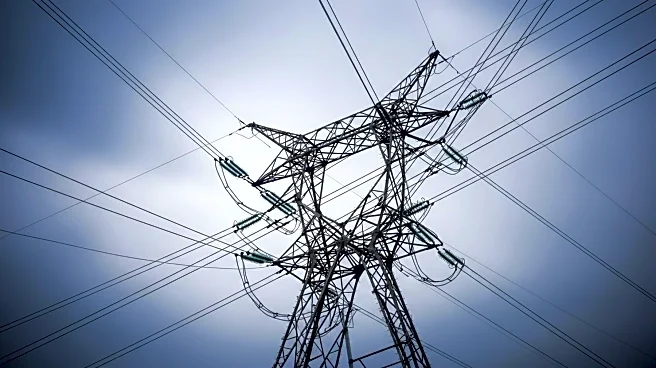What's Happening?
The U.S. energy sector is experiencing significant backlash from consumers due to unexpectedly high power bills, driven by record-breaking heat, increased demand, and an aging grid. This situation has exposed longstanding structural weaknesses within the energy system, including underbuilt transmission infrastructure and climate-related capital costs. A recent survey highlighted that 75% of households prioritize affordability in their energy experience, with 65% unable to manage even a 10% increase in energy bills. The crisis is compounded by global supply strains, as only 20% of U.S. utility infrastructure is domestically produced, leading to increased costs and wait times for equipment. Stakeholders are urged to address these issues through strategic partnerships between the energy and tech sectors and policymakers.
Why It's Important?
The rising power costs have become a universal concern, affecting households across socioeconomic statuses and potentially becoming a political issue with upcoming gubernatorial and utility regulatory board elections in several states. The energy sector's ability to deliver projects on time and within budget is at risk if these concerns are not addressed. Companies must demonstrate empathy and flexibility to maintain public trust and support. The situation presents an opportunity for the energy and tech sectors to redefine the grid and build resilience by aligning operations, reputation, and policy positioning. Failure to address these issues could lead to profound effects on future infrastructure investments and developments.
What's Next?
Energy companies are encouraged to control the narrative by being proactive in their commitments to affordability and reliability. Infrastructure investments should be framed as solutions to existing problems, and companies should offer practical ideas to policymakers on permitting, transmission, clean energy integration, and affordability. The immediate term requires building public trust alongside capital investment, as the grid is being redefined in real time. The energy and tech sectors must prioritize communications, public affairs, and relationship investments to navigate the current challenges successfully.
Beyond the Headlines
The current situation serves as a communications test and leadership opportunity for the energy and tech industries. With advancements in geothermal, nuclear fusion, and carbon capture expected within the next decade, there is potential for significant energy solutions. However, the immediate focus must be on addressing the backlog of investment, both physical and relational, to lay the groundwork for future developments. Companies must take grassroots complaints seriously to avoid future damage and capitalize on the opportunity to redefine the energy landscape.









